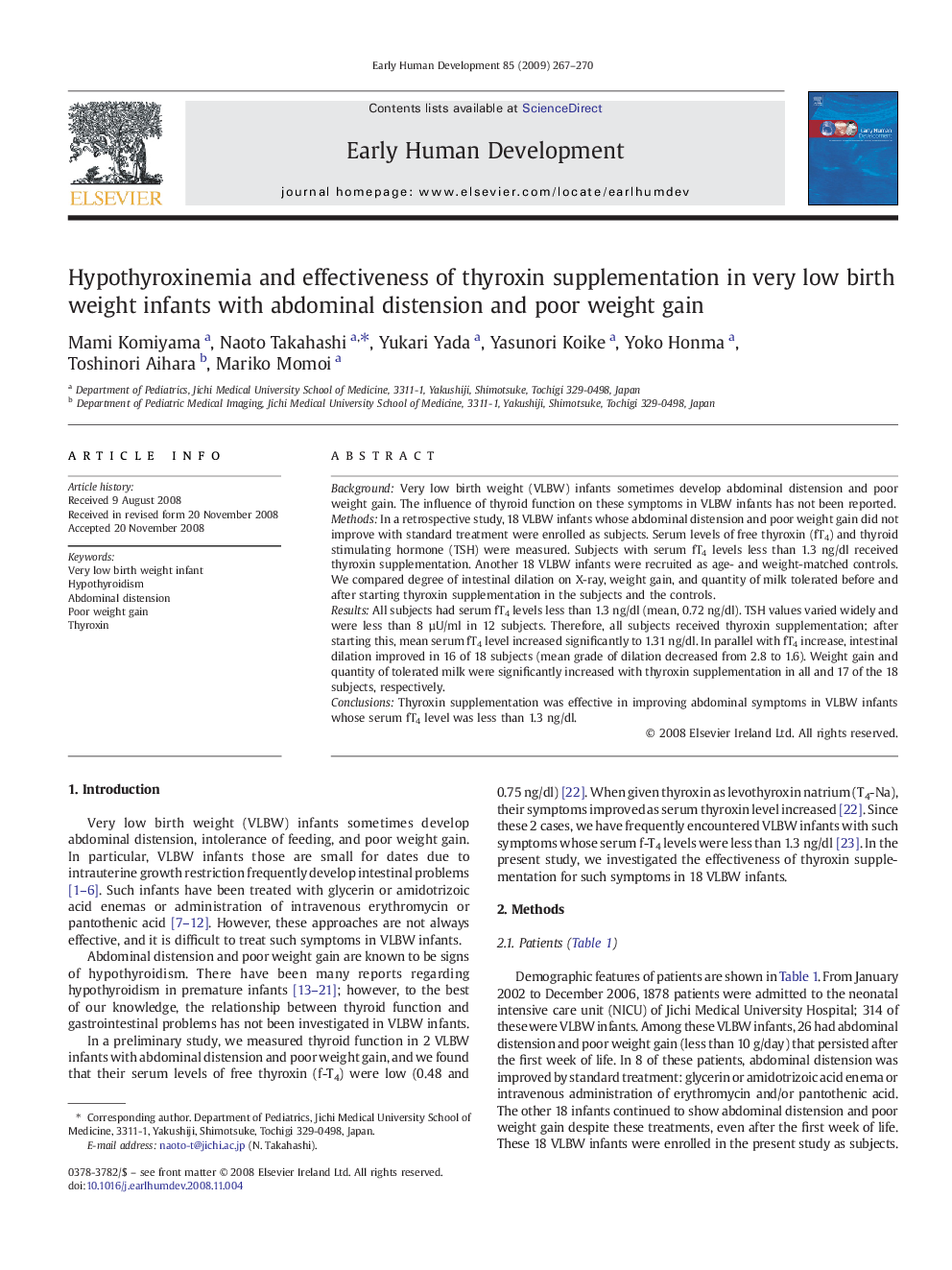| Article ID | Journal | Published Year | Pages | File Type |
|---|---|---|---|---|
| 3917754 | Early Human Development | 2009 | 4 Pages |
BackgroundVery low birth weight (VLBW) infants sometimes develop abdominal distension and poor weight gain. The influence of thyroid function on these symptoms in VLBW infants has not been reported.MethodsIn a retrospective study, 18 VLBW infants whose abdominal distension and poor weight gain did not improve with standard treatment were enrolled as subjects. Serum levels of free thyroxin (fT4) and thyroid stimulating hormone (TSH) were measured. Subjects with serum fT4 levels less than 1.3 ng/dl received thyroxin supplementation. Another 18 VLBW infants were recruited as age- and weight-matched controls. We compared degree of intestinal dilation on X-ray, weight gain, and quantity of milk tolerated before and after starting thyroxin supplementation in the subjects and the controls.ResultsAll subjects had serum fT4 levels less than 1.3 ng/dl (mean, 0.72 ng/dl). TSH values varied widely and were less than 8 µU/ml in 12 subjects. Therefore, all subjects received thyroxin supplementation; after starting this, mean serum fT4 level increased significantly to 1.31 ng/dl. In parallel with fT4 increase, intestinal dilation improved in 16 of 18 subjects (mean grade of dilation decreased from 2.8 to 1.6). Weight gain and quantity of tolerated milk were significantly increased with thyroxin supplementation in all and 17 of the 18 subjects, respectively.ConclusionsThyroxin supplementation was effective in improving abdominal symptoms in VLBW infants whose serum fT4 level was less than 1.3 ng/dl.
